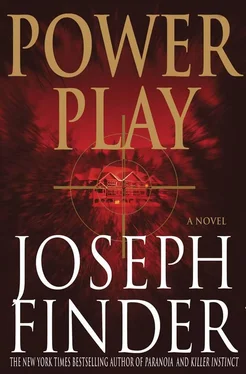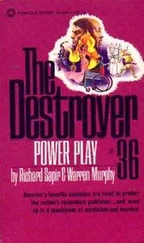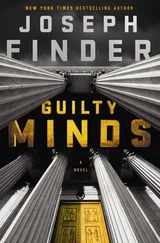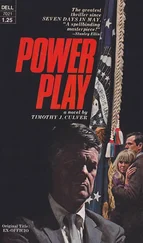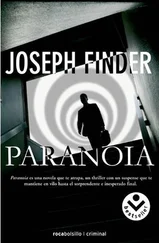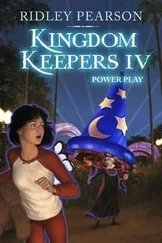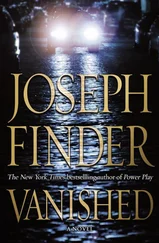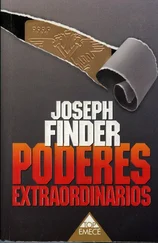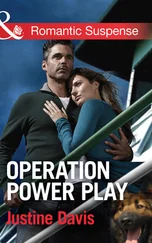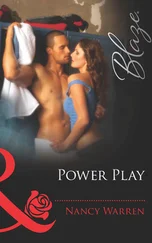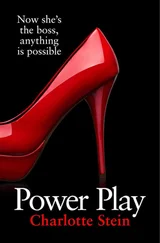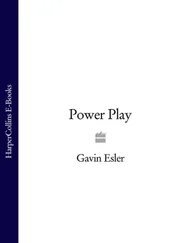"All right. Is no one going to help me move this body?"
Silence.
"Me," came a voice from the far back corner. It was one of the Mexican waiters. The one I'd talked to at dinner.
Pablo, I remembered his name was.
"I help you," he said.
Pablo was small and skinny, with short dark hair and widely spaced brown eyes; for an instant I thought of Pee Wee.
But they looked nothing alike. This kid was slight of build, but scrappy, not fragile. And something else I'd glimpsed at dinner, as he apologized for spilling the wine: Behind the innocent eyes loitered a hell-raiser. A kindred spirit.
It was surprising how much easier it was to cut someone else loose than it had been to free myself. A couple of quick slashing motions using the heel of the blade, and the fibers began to give way, the strands splaying.
"There's no closet in this room, right?" I sliced through the ropes and tugged them off, jammed the two pieces of rope into my back pockets with the others.
"No closet."
"Out there?" I jerked my head toward the door as he clambered to his feet, ran behind me.
"For the table linens," he said. "But basement is closer."
No movement in the windows, no silhouetted figures. No screen doors slamming, no footsteps in the hall; not yet.
The entrance to the fitness center, in the basement, was next to the screened porch. Too close to Russell and his brother.
"How do we get down there?"
"I show you."
He knelt at one end of Buck's unconscious body, grabbing under the arms, his chest pressing against the back of Buck's neck.
The eyes came open just a bit, exposing little white crescents, and for a second I thought he might be regaining consciousness.
Turning around, I squatted between Buck's legs, grabbed his knees, leading the way out of the room.
Two hundred and fifty pounds or more of unconscious man was even heavier than I'd expected. Dried mud crumbled from the traction soles of his combat boots.
The great room was dark and still smelled of dinner.
How many hours ago was that? Five, maybe six? No more: yet the other side of a chasm.
We threaded carefully among the jumbles of haphazardly stacked furniture.
"Where kitchen is," he said, directing me with his eyes. We struggled to balance the body between us, keep it from sagging.
"If they come in," I said, "we drop him and run, understand?"
He nodded, strain contorting his face.
"There," he whispered.
I steered Buck's knees toward the kitchen door. The small round inset pane of glass was black, opaque. That meant, I assumed, that no one was in the kitchen.
The floorboards creaked.
I pushed against the door, swinging it open into the dark corridor. The cellar door, on the left, was sturdy oak.
"There," Pablo said again. "Switch is on the wall."
I let go of Buck's right knee to grab the big black iron knob. His right leg dangled, then his boot thumped loudly against the floor.
Somewhere a screen door banged.
I gave Pablo a look, but he already understood. We were moving as quickly as we dared with our ungainly burden.
The cellar door groaned open, rusty hinges protesting. I found the light switch on the wall, flicked it up, and a bare bulb came on, illuminating a narrow, steep stairway. The ceiling was low and sharply canted.
"Careful," Pablo whispered. "The steps-no backs."
I saw what he meant at once: The wooden steps were open, had no risers. A trip hazard, particularly since we couldn't easily look down.
The steps squeaked as we descended into dank cold air, the faint odor of mildew.
The cellar was dark, seemed to go on forever. Presumably, it followed the footprint of the lodge. The concrete floor, fairly recent, had probably been poured over the original packed earth.
A new cinder-block wall ran along one side, partitioning off the fitness center, a recent addition, from the rest of the basement. Against the wall was a line of old black steamer trunks, wooden crates, neat stacks of cardboard boxes. A facing row of metal shelving displayed miscellaneous junk: old lamps, cardboard boxes of lightbulbs, an antique Waring blender. An open pantry on the other wall was stacked with burlap sacks of rice and canned beans and giant tins of cooking oil.
"We need to tie him up to something that won't move," I said. "Where's the boiler?"
"Maybe something else," Pablo said. He jerked his chin to the left.
We carried Buck's body along a narrow aisle between tall steel shelves of laundry detergent and bleach and floor wax. Now, I figured, we were directly under the great room and the front porch. Oddly, the concrete walls sloped inward to what looked, at first glance, like the floor-to-ceiling bars of a prison cell. The light from the stairwell was too distant; I couldn't make out what it was.
Pablo gently set down Buck's head; I dropped the legs. Then he located a light switch mounted on a steel column and flipped it, lighting a line of bulbs on the ceiling.
Behind the steel bars, I could see, was a room whose walls and low, barrel-vaulted ceiling were built from weathered red brick. The floor was gravel. Plain wooden racks held hundreds of dusty wine bottles.
The wine cellar.
"Yes," I said, grasping a bar and tugging. "Good."
I pulled the two lengths of rope from my pockets, held them up. "We're going to need some more rope."
"Rope? I don't think down here…"
"Anything. Wire. Chain."
"Ah, maybe…" He turned slowly and headed back the way we'd come.
The wine cellar's grate was made of stout iron bars, the finest jailhouse construction. The Chвteau Lafitte wasn't going anywhere, and neither was Buck.
A guttural moan.
I spun around, saw Buck starting to sit up.
His large hands pushed against the cement slab floor. I sidestepped around behind his back, then lurched forward, hooking my right elbow under his chin. The bristles of his hairy neck felt like steel wool against the crook of my arm. When I had his throat in a vise grip, I grabbed my right hand with my left, clasped them together, and squeezed.
Adrenaline coursed through my bloodstream.
He struggled mightily to free himself from the jailer's hold, flung his hands upward, twisting and torquing his legs around.
My arm muscles trembled from the exertion. In ten seconds or so he'd gone limp. The carotid arteries on either side of the neck supply blood to the brain. Compressed, they don't.
Dad had taught me the blood choke. He'd actually demonstrated it on me once until I passed out.
Pablo rushed toward me, ready to help, then watched me set Buck's head on the floor. He held up a tangled mess of brown lamp cord.
"Perfect." I handed him the steak knife and asked him to cut off pieces a couple of feet long.
In Buck's tactical vest I found a black nylon sheath, out of which I pulled a knife. This was no steak knife, either. It was just like the one I'd seen Verne take out earlier-a Microtech Halo, a single-action front-opener. I could tell right away from the logo, a white claw in a circle set against the matte black, anodized aluminum handle. At Glenview one just like it had sent a kid to the hole for six months.
I pressed the titanium firing button, and a lethal-looking blade shot forward. It kicked in my hand. A four-inch blade, partially serrated. I didn't need to touch the spearpoint to know it could take off a fingertip.
I handed it carefully to Pablo.
"ЎDios mнo!" he breathed. He had one gold tooth: lousy Mexican dental care.
"Be careful."
While he sliced lamp cord, I took out the Ruger, thumbed the cylinder release, saw it was loaded. Several of his vest pockets were stuffed with. 44 Magnum cartridges; I grabbed a handful. There was a flashlight in one of his vest pockets, and I took that, too: an expensive-looking tactical flashlight, the kind you see SWAT teams use to temporarily blind suspects at night.
Читать дальше
